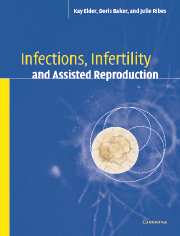5 - Prions
from Part I - Overview of microbiology
Published online by Cambridge University Press: 29 October 2009
Summary
Prion protein
‘Prions’ (proteinaceous infectious particles) are particles made up of an abnormal glycoprotein that is capable of causing a cell to produce more abnormal protein. The Prion particle is a unique agent, infectious by biological and medical criteria, but different from all known conventional microbes because it contains no elements of nucleic acid genetic material. Prusiner identified and classified prion diseases in 1982, and his work in describing prions as infectious protein particles that cause neurodegenerative disorders (Prusiner, 1991, 1995) gained the Nobel Prize in 1997. All known prion diseases are fatal; they are known as ‘spongiform encephalopathies’ because they cause the brain to be riddled with holes or ‘spongy’, with accompanying symptoms of progressive neurological degeneration. The spongiform change occurs without inflammation, inclusion bodies, or apparent immune response.
Prion diseases
Prion diseases, known as transmissible spongiform encephalopathies, (TSEs) can be infectious/ iatrogenic (5%), inherited (10%), or sporadic (‘Classical’, 85%).
Animal
The first neurological disease of this kind was described in sheep during the early eighteenth century. Affected sheep rub or ‘scrape’ their coat against a tree, as if it itches – hence it was given the name ‘scrapie’ in England. In France, it was known as ‘La tremblante’ because the animals shake due to ataxia. In 1966, Alper showed that the infectious agent responsible for scrapie in sheep was very UV-resistant, compared with known viruses. This finding led to the suggestion that scrapie might be infectious without the involvement of a nucleic acid.
- Type
- Chapter
- Information
- Infections, Infertility, and Assisted Reproduction , pp. 122 - 130Publisher: Cambridge University PressPrint publication year: 2004



